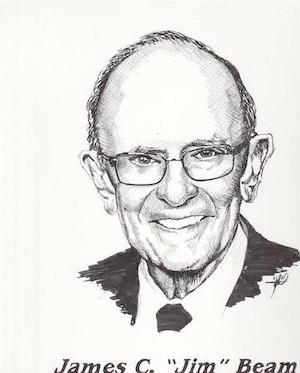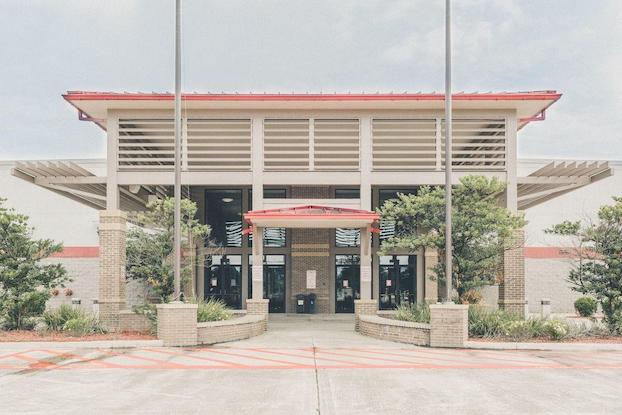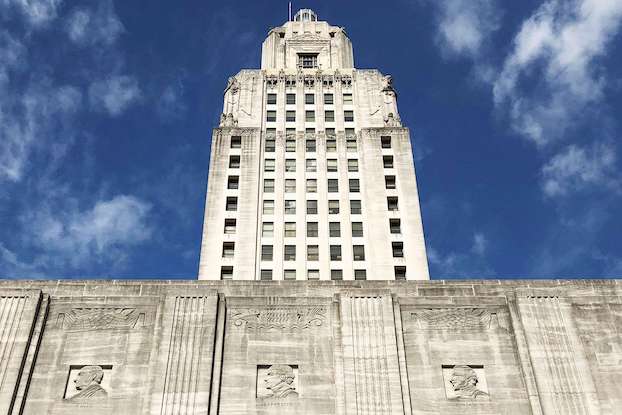Jim Beam column: Voters can remember names
Published 6:40 am Wednesday, March 1, 2023

- James C. "Jim" Beam
When it comes to politics, name recognition continues to be one of the major keys to winning elections. The earliest example I saw of that was during the 1959-60 legislative elections in Calcasieu Parish.
The late-Jesse Knowles of Lake Charles was running for state representative. He kept running a series of one column by one inch advertisements in different sections of the American Press that just said “Knowles.” The advertisements proved to be extremely successful.
Republican state Attorney General Jeff Landry, who is running for governor, had a big lead over his GOP opponents in a recent poll. A political consultant said much of his strength comes from being better known among voters.
Landry has challenged Democratic Gov. John Bel Edwards on a number of occasions. He has also taken stands on controversial social issues and made many court challenges that have gained him considerable publicity.
Here is some background on that 1959-60 legislative election before we get back to the poll led by Landry.
Four candidates for two state House seats in a nine-man field in the Dec. 5, 1959, Democratic primary ended up in the runoff. State Rep. Horace Lynn Jones of DeQuincy was seeking a fourth term and he led with 12,487 votes. Then came Knowles with 11,429 votes, James H. “Jim” Brown with 7,194 and L.E. “Pete” Hennigan with 6,995, all from Lake Charles.
Knowles, with 20,785 votes, and Brown, with 17,002 votes, were the Democratic Party nominees in the Jan. 9, 1960, runoff. They won the April 19, 1960, general election. Knowles had 17,541 votes. Brown had 16,502. They defeated Republican Dr. William S. Boyd, a chiropractor, who polled 3,365 votes.
Boyd and two other Republicans running for the Calcasieu Parish Police Jury were contesting Democrats for state and parish offices in Calcasieu Parish for the first time since Reconstruction days after the Civil War. The GOP candidates for Police Jury also lost.
Knowles served one four-year term in the House and then four four-year terms in the state Senate.
Now, back to those recent polls. Survey USA did a poll on the governor’s race for a group called Put Louisiana First between Jan. 26 and Feb. 1. The results were reported by The Advocate.
The newspaper said AG Landry was well ahead of actual or possible candidates eight months before the Oct. 14 primary. Democrat civil rights activist Gary Chambers of Baton Rouge was second. Landry scored 23%; Chambers had 20%.
Like Landry, Chambers benefited because of name recognition. In addition to civil rights activities, he ran unsuccessfully in 2019 for a state Senate seat. He lost a contest for Louisiana’s 2nd Congressional District seat in 2021. In 2022, he came in second in the primary for the U.S. Senate seat won by Republican John Kennedy.
If retiring state transportation secretary Shawn Wilson, a Democrat, enters the governor’s race, Chambers said he won’t be a candidate.
Three other Republicans are running for governor. State Treasurer John Schroder and state Sen. Sharon Hewitt of Slidell polled 5% each. State Rep. Richard Nelson of Mandeville wasn’t included in the poll.
Hunter Lundy of Lake Charles, an independent, trial attorney and Christian minister, polled 3%.
U.S. Sen. Bill Cassidy, R-Baton Rouge, said he isn’t running for governor, but he scored 17 percent in the poll. U.S. Rep. Garret Graves, R-Baton Rouge, hasn’t announced and isn’t expected to run, but he polled 12%. Katie Bernhardt, chairwoman of the state Democratic Party, said she isn’t a candidate, but polled 11%.
These early poll results will change over the course of the gubernatorial election campaign. Candidates will qualify Aug. 8-10, and that is when the final lineup will be known. However, because of name recognition Landry is definitely a strong candidate.
Landry ran unsuccessfully for a state Senate seat in 2007. He was elected to Louisiana’s 3rd Congressional District seat in 2010. The state lost the 7th Congressional District seat in 2012 and U.S. Rep. Charles Boustany Jr. of the 7th District defeated Landry for the 3rd District seat.
In 2015, Landry was elected state attorney general, defeating incumbent James “Buddy” Caldwell. Landry was re-elected in 2019.
Landry hasn’t said much about what he would do as governor, but he has spent most of his last seven-plus years challenging Edwards and others on controversial social issues. Like some other conservatives, he wants to tell schools what they can teach, libraries what they can let people read and challenge elections when they don’t like the outcome.
It’s easy to understand why an “Anybody but Landry” campaign is already underway.





